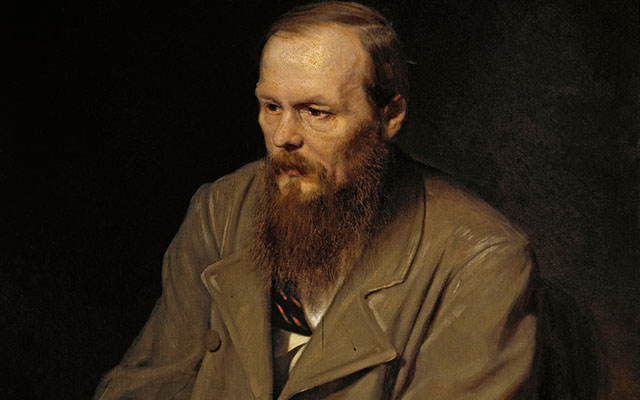Dostoyevsky’s charming masterpiece

Stanely Mushava Literature Today
There is a new job for Vladimir Putin’s couriers. The Russian president has recently been circulating Fyodor Dostoyevsky’s novels among his provincial governors to shore up cultural nationalism.
Harvard Political Review suggests that Putin has commandeered Dostoyevsky’s grand design of a Christian Pan-Slavic confederacy with Russia at the centre for his geopolitical arrangements.
While the journal has few axes to grind with the Russian leader, faulting him for a piecemeal appropriation of Dostoyevsky’s essentially Christian vision, it tracks the Kremlin’s ambition for a title role on the world stage to the iconic novelist.
The author of “The Brothers Karamazov” is not new in the corridors of power.
Researchers have been seized with notes and highlights in Joseph Stalin’s copy of the 19th century classic.
Beyond patriotic pieties, Dostoyevsky’s masterpiece has also charmed American first ladies, Hillary Clinton and Laura Bush, while Pope Francis and Pope Benedict XVI cite the author approvingly in their encyclicals.
What accounts for Dostoyevsky’s favourable reception in the spiritual and political metropolises of the West even as he insistently chants them down in his novels?
Essentially, the universal currency of his work.
“The Brothers Karamazov” is, above all, the drama of bondage regeneration.
Dostoyevsky inaugurated an enduring segment of the God debate with this prescient novel.
His supreme achievement is wresting the individual from organising principles, to champion him as an entity apart.
The novelist wrote when the world was entering a manic stretch from which it would never recover.
The successive dispensations of history from the 20th Century mainly, consist in chanting freedom as an organising front for profit and power, and retailing progress to subsume the autonomy of the individual.
A prescient Dostoyevsky grapples with a future where man is spiritually depleted by new organising principles, and humanity corroded by new culture wars.
Whether the supreme idea of the 21st Century is secular science, technology, globalisation, nationalism, religion, socialism or capitalism, Dostoyevsky has uncomfortable questions for a world that has holes in its soul and flames in its thatch.
He asks what the future bodes for man’s will to survive, how his spiritual correspondence will sustain in an environment that reduces everything to the profit motive, and collapses purpose into pleasure .
At the high point of the “The Brothers Karamazov”, an alternation of psychological monologues during the parricide trial, the prosecutor says, “in the West they may have their Hamlets, but as yet we have nothing but Karamazovs!”
Whatever else it is, the statement is an immodest estimation of the novel’s place in world literature.
Dostoyevsky’s enduring anatomy of man lost in a world that no longer lends itself to obvious definitions places him in the front stack with Shakespeare and others.
“The Brothers Karamazov” has been the subject of endearing homage by intellectual notables including Albert Einstein, James Joyce, Sigmund Freud and Franz Kafka. Dostoyevsky’s coursing through the conflicted recesses of his characters’ minds, retrieves a universal drama that still fascinates participants on both sides of the God debate.
Ivan Karamazov’s assertion, “without God everything is permitted,” is an ominous prophecy for a global north that increasingly spurns religious affiliation.
This way of proceeding portends delusion, anarchy, madness and self-destruction.
Having equipped his most fascinating character with a clarity few atheists can ever weigh into the public discourse, Dostoyevsky sets Ivan on a path to explore the logical implications of his rejection of God.
His mental faculties give way, as he struggles to process the Oedipal horror that follows.
Ravi Zacharias credits Friedrich Nietzsche with unsparingly investigating the logical implications of willing God out of the universe, whereas the new atheists only skim the surface for all their belligerence.
Like Dostoyevsky’s protagonist, Nietzsche’s mind also gave way, unable to process the horror of God’s funeral.
Without intelligent design, man is an accidental mass of cells, only separated from animals by a finer wiring of neurons. For Ivan, that can only mean switching off the sun for mankind.
“Destroy a man’s belief in immortality and not only will his ability to love wither away within him but, along with it, the force that impels him to continue his existence on earth.
“Moreover, nothing would be immoral then, everything would be permitted . . . for every individual . . . who does not believe in God or immortality, the natural moral law immediately becomes the opposite of religious law and . . . absolute egotism, even carried to the extent of crime, must not only be tolerated but even recognised as the wisest and perhaps the noblest course,” Ivan explores, in a fellow secularist’s words, the consequences of negating faith.
He is juxtaposed with Elder Zosma, a humble and honest monk whom Dostoyevsky equips with his apologetics war chest.
Zosma is apprehensive of the onslaught of secular science which, for him, determines only what is received through the senses, whereas man belongs to a higher order of existence.
If God is precluded from the quest for the meaning of life, something must still account for man’s moral ideals, emotional strivings and spiritual yearnings, yet science falters even at the finest of its neuro-themed layers.
“The Grand Inquisitor” poem told by Ivan to Alexei is a timeless critique of Christendom and accounts for mankind’s creative propensity for crime in the name of God, from the inquisition, crusades and terrorism to financial opacity and political meddling among today’s mega-churches.
In the poem, Christ, newly returned during the inquisition, is confronted by a cardinal in charge with burning heretics at the stake and told to go and never return since the church is now in league with the arch-fiend.
On one level, the poem separates ideal from operational religion.
Such a distinction is necessary in every sphere, given the corrupting tendencies of power and control.
Science can promise progress, knowledge and prosperity on one side and propagate unemployment, espionage and annihilation on the other.
The same can be said of all things ideal, the answer being to subject every centre to democratic scrutiny.
Elder Zosma despairs at a future where the poor are handed all the rights, but not given the means to enjoy them. And, as capitalism continues to whet artificial needs and fire up consumerism, man is neither richer nor wiser.
“To consider freedom as directly dependent on the number of man’s requirements and the extent of their immediate satisfaction shows a twisted understanding of human nature, for such an interpretation only breeds in men a multitude of senseless, stupid desires and habits and endless preposterous inventions,” the elder laments.
Dostoyevsky is devoted to children but in “The Brothers Karamazov”, his distress is palpable, having lost a son towards his authorship of the project.
Suffering, explored in several scenarios in the novel, gives intensely in the death of young Ilyusha towards the end of the novel.
Alexei, the Karamazov novice who represents everything sacred in the novel, attaches the deceased boy’s friends to a blessed hope.
“You often hear people speak about upbringing and education, but I feel that a beautiful, holy memory preserved from early childhood can be the most important single thing in our development.
“And if a person succeeds, in the course of his life, in collecting many such memories, he will be saved for the rest of his life. And even if we have only one such memory, it is possible that it will be enough to save us some day.” In the era of Facebook-customised piety, this should be infinitely easier.
*Note to the reader: Literature Today’s weekly grind discusses books written in our time but gives an occasional nod to books written for our time. “The Brothers Karamazov” is one such timeless trove.
*Feedback: [email protected]









Comments